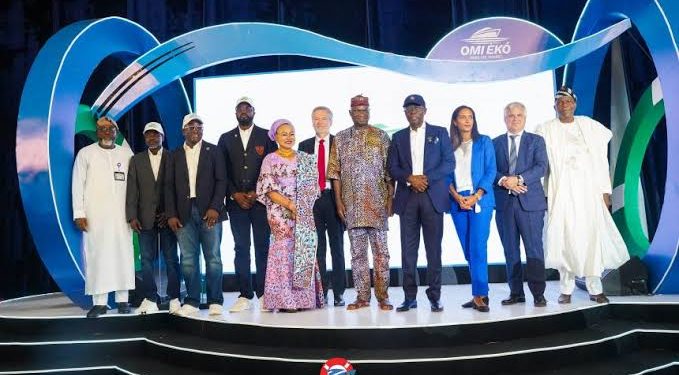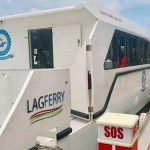The Lagos State Government has launched the €410 million Omi Eko Project, a major inland waterways transport initiative designed to revolutionise mass transit across the Lagos Lagoon and reduce pressure on the road network. The project was officially flagged off at the Five Cowries Terminal in Ikoyi by Governor Babajide Sanwo-Olu.
Implemented by the Lagos State Waterways Authority, the project is funded through the Global Gateway Initiative with €360 million provided by international development partners—the French Development Agency, the European Union, and the European Investment Bank. The financing package includes a €60 million EU grant, a €130 million subsidised loan from AFD, and a €170 million subsidised loan from EIB.
Spanning from 2024 to 2030, Omi Eko is structured around two major components. The first focuses on the development of critical water transport infrastructure. This includes the creation of 15 priority ferry routes, the dredging, marking, and channelisation of 140 kilometres of waterways, and the construction of 25 ferry terminals and jetties. The project also incorporates electric charging stations for e-vessels, maintenance depots, and improved road links to ferry terminals to ensure intermodal transport access.
Designed with climate resilience in mind, all land-based facilities will be built to withstand an 80% sea level rise projection by 2100. Floating pontoons will replace fixed concrete structures to adapt to tidal changes, while proper drainage systems will be installed to mitigate flooding risks.
The second component targets sustainable operations and governance. Over 75 electric-powered ferries will be deployed, supported by intelligent transport systems such as digital ticketing, passenger information systems, vessel tracking and control centres. LASWA will also undergo capacity building to ensure effective regulation, safety enforcement, and long-term operational standards for Lagos’ water transport network.
The state government and its partners project that Omi Eko will move up to 25 million passengers yearly, reducing road congestion, promoting greener transport, and expanding access to affordable mobility for residents and businesses. For MSMEs, especially those dependent on daily movement of people and goods, improved marine transport is expected to open new commercial corridors and reduce travel delays across the city.










